AMF Regulatory Entity

In this article
AMF, the Autorite des Marches Financiers, also known as a financial market authority, is a public regulatory entity. AMF regulatory entity is responsible for the supervision of the operations that occur in the financial market. In addition, it ensures the protection of investor’s investment savings and provides them adequate information about their financial product.
The AMF was established under the Financial Security Act of 2003 as an independent entity that regulates France’s financial industry. The formation of AMF has occurred in the replacement of three French financial regulatory bodies that are the Conseil des Marches (CMF), the Commission des Operations de Bourse (COB) and the Conseil de Discipline de la Gestion Financiere (CDGF). The AMF is funded through the fees that come from various financial corporations it regulates.
The AMF regulatory authority deals with the products and participants of France’s financial market. It is responsible for the authorization, regulation and evaluation, and investigation of the financial markets and issues sanctions. It also provides investors with mediation services to assist in dispute resolutions and for their protection.
AMF Mission
As an independent authority, AMF’s mission is to enhance its regulatory powers and achieve a substantial managerial and financial independence level. It emphasizes providing authentic information to the investors about the financial products available in the market. AMF aims to become a driving force behind the European and international levels.
AMF vision
The AMF’s vision is to develop a financial regulatory framework related to the harmonized, precise and consistent international standards. AMF plays the main role with the European, French and international institutions and has the vision to promote this collaboration because of globalized financial markets in today’s world. It also has the vision to regulate the market efficiently, promote the investors’ financial market attractiveness, and provide a sustainable financial system.
AMF roles and responsibilities
The AMF has specific roles that it performs as an independent regulatory entity. The primary role of AMF is to regulate, inform and protect the financial products and participants. Its primary roles are to ensure the regulation of an efficient financial market, provide information to the investors, and protect investments in financial products.
It also has certain responsibilities to achieve its objectives explained by the Financial Security Act of 2003. It enforces its regulatory powers to fulfil its responsibilities that include:
- Establishing rules and regulations for the institutions.
- Authorization of the participants.
- Approving disclosures related to financial corporations.
- Transaction and monitor collective investment products.
- Conducts inspections and investigations.
- Offering investors, the mediation service.
- Informing financial products details to the investor.

AMF core functions
The core functions AMF performs to regulate the financial institutions to set the France financial market at high international standards are following:
- Bringing a regulatory change.
- Committing sustainable finance.
- Promoting the attractiveness of the financial market.
- Authorizing financial products and participants.
- Surveillance and monitoring.
- Inspecting and investigating.
- Imposing sanctions.
- Promoting settlement.
- Providing mediation service.
Also, in its obligation to French monetary establishments, the AMF regulates all individuals and merchandise running in the country, including asset control organizations, economic advisors, crowdfunding advisors, and principal securities depositors. It also protects investors from cash laundering, terrorist financing, and problem sanctions and fines to businesses determined to breach compliance obligations. In addition, the AMF may censure people inside an economic institution, including enterprise directors, employees, officers, or every person performing on behalf of a monetary entity.
AMF Anti Money Laundering (AML)
The AMF performs Anti-money laundering operations under Article L.561-36 of the Financial Code and French Monetary. The AMF regulatory entity regulates AML to ensure that financial activities undertaken in the financial institution are according to their related legislative law. It also evaluates the compliance of financial institutions activities with the standards set out by the AMF Anti Money Laundering policies and practices.
The Anti-money Laundering activities AMF performs include:
- Reporting Obligations
- Coordination with French authorities
- Risk-Based Vigilance
- Audit and inspections
Risk-based Vigilance
The AMF enforces financial institutions to establish their Vigilance in updating the client’s risk profiles at a suitable level. Risk-based Vigilance forces the financial institutions to set their AML policies and control system according to the AMF policies and guidelines. The level of Vigilance is proportional to the level of risk that clients present.
Reporting Obligations
To enforce AML, the AMF regulates the risk-based approach and requires that financial institutions under its jurisdiction report any suspicious behaviour regarding money laundering directly to the TRAFCIN, Treatment du Renseignement et Action Contre les Circuits Financiers Clandestine). TRAFCIN is the Finance enforcement body of the French Ministry with which AMF works to perform its AML activities.
Audits and inspections
To administrate AML regulations and ensure the financial institution’s compliance with these regulations, the AMF performs audits and inspections of French financial institutions. It monitors both the AML internal procedures and the infrastructure of financial institutions. However, if any participant of AMF breaches the regulation will be directly reported to the AMF enforcement committee.
Coordination with French authorities
The AMF promotes its Anti-money laundering efforts by setting France’s AML activities at the highest standards. For achieving high-performance standards in Anti-money Laundering, it collaborates with various associated national authorities such as Conseil d’Orientation de la Lutte Contre le Blanchiment de Capitaux (COLB) and Autorite de Contrôle Prudentiel (ACP).
AMF corporate social responsibility
Corporate social responsibility is also an essential objective in AMF day to day activities. The AMF employees and other AMF structures such as AMF internal strategy, performance indicator, and governance efficiently perform corporate social responsibility. However, its corporate social responsibility is already efficient, but it needs to develop and improve its transparency.
AMF views sustainable development as a major challenge for society. Accordingly, it is more committed to including sustainability issues in its strategy toward the participants of the financial market it regulated and their daily life actions.
Bottom line
The AMF is an impartial public frame chargeable for safeguarding investments in economic instruments and all other financial savings and funding in addition to keeping orderly monetary markets. The AMF is specific in that it oversees, in an included manner, the regions of insurance, securities, derivatives, deposit institutions aside from banks and the distribution of monetary merchandise and services. In addition, it regulates the French Monetary Marketplace, its individual, and funding merchandise disbursed through the markets. Therefore, it has the powers and a huge monetary and managerial independence stage as an impartial public authority.
Jason Morgan is an experienced forex analyst and writer with a deep understanding of the financial markets. With over 13+ years of industry experience, he has honed his skills in analyzing and forecasting currency movements, providing valuable insights to traders and investors.
Forex Content Writer | Market Analyst
Relevant Posts
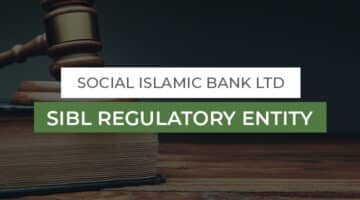
SIBL Regulatory Entity
[top_three_brokers] The Social Islamic Bank Ltd (SIBL) is a top-leading and renowned second-generation commercial bank…
Read more
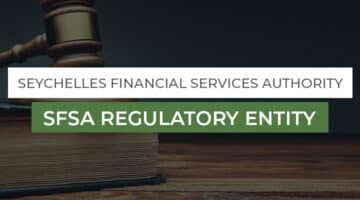
SFSA Regulatory Entity
[top_three_brokers] SFSA stands for Seychelles Financial Services Authority. This regulatory entity supervises non-bank financial services…
Read more
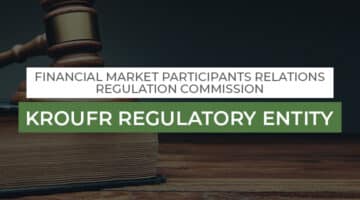
KROUFR Regulatory Entity
[top_three_brokers] The Financial Market Participants Relations Regulation Commission, KROUFR, is a non-profit regulatory organisation. Its…
Read more
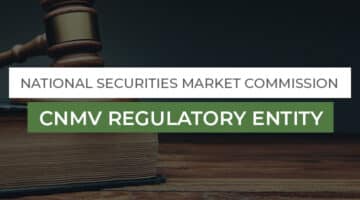
CNMV Regulatory Entity
[top_three_brokers] The National Securities Market Commission (CNMV) is a regulatory body that inspects and supervises…
Read more
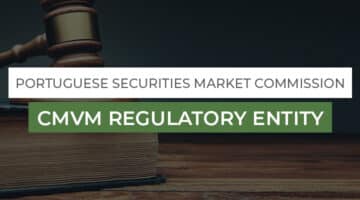
CMVM Regulatory Entity
[top_three_brokers] The CMVM is a forex broker company set up in Portugal that provides financial…
Read more
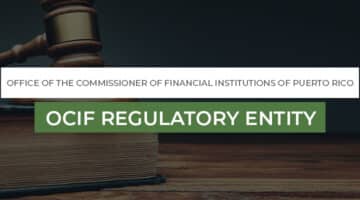
OCIF Regulatory Entity
[top_three_brokers] The Office of the Commissioner of Financial Institutions of Puerto Rico (OCIF) is the…
Read more
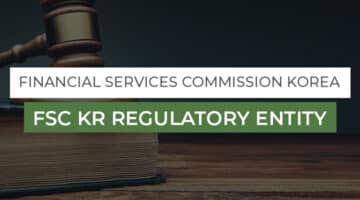
FSC Korean Regulatory Entity
[top_three_brokers] Korean FSC Regulatory Entity (The Financial Services Commission -Korea) is a government-run organisation responsible…
Read more

GFSC Regulatory Entity
[top_three_brokers] Guernsey Financial Services Commission is charged with maintaining financial industry standards in the Bailiwick…
Read more
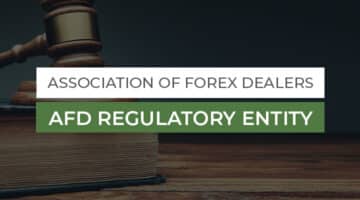
AFD Regulatory Entity
[top_three_brokers] AFD is termed as Association of Forex dealers which is a self-regulatory organization (SRO)…
Read more
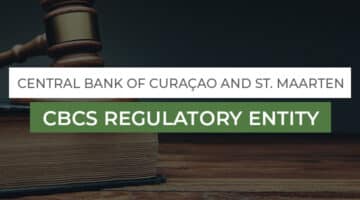
CBCS Regulatory Entity
[top_three_brokers] CBCS is the "Central Bank of Curaçao and St. Maarten (the Central Bank)." The…
Read more

SIBL Regulatory Entity
[top_three_brokers] The Social Islamic Bank Ltd (SIBL) is a top-leading and renowned second-generation commercial bank…

SFSA Regulatory Entity
[top_three_brokers] SFSA stands for Seychelles Financial Services Authority. This regulatory entity supervises non-bank financial services…

KROUFR Regulatory Entity
[top_three_brokers] The Financial Market Participants Relations Regulation Commission, KROUFR, is a non-profit regulatory organisation. Its…

CNMV Regulatory Entity
[top_three_brokers] The National Securities Market Commission (CNMV) is a regulatory body that inspects and supervises…

CMVM Regulatory Entity
[top_three_brokers] The CMVM is a forex broker company set up in Portugal that provides financial…

OCIF Regulatory Entity
[top_three_brokers] The Office of the Commissioner of Financial Institutions of Puerto Rico (OCIF) is the…

FSC Korean Regulatory Entity
[top_three_brokers] Korean FSC Regulatory Entity (The Financial Services Commission -Korea) is a government-run organisation responsible…

GFSC Regulatory Entity
[top_three_brokers] Guernsey Financial Services Commission is charged with maintaining financial industry standards in the Bailiwick…

AFD Regulatory Entity
[top_three_brokers] AFD is termed as Association of Forex dealers which is a self-regulatory organization (SRO)…

CBCS Regulatory Entity
[top_three_brokers] CBCS is the "Central Bank of Curaçao and St. Maarten (the Central Bank)." The…

